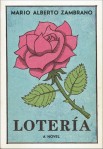 Javier Marías’ The Infatuations (Knopf) begins with an intriguing premise.
Javier Marías’ The Infatuations (Knopf) begins with an intriguing premise.
A young woman, María Dolz, eats breakfast every morning at a café in Madrid that is frequented by an attractive couple, Luisa and Miguel.
“The nicest thing about them was seeing how much they enjoyed each other’s company. At an hour when almost no one is in the mood for anything, still less for fun and games, they talked non-stop laughing and joking, as if they had only just met or met for the every first time.”
One day, she discovers Miguel is murdered. She becomes friends with Luisa as well as with Javier, a friend of the couple who helps the widow out after her husband’s death. María becomes entranced by the mystery of Miguel’s death — and Javier may have played a role in the part.
The Infatuations sounds like a great thriller, but it’s more intellectual. Whether you’ll like it depends on your tastes in literature.
The characters often talk in long monologues than can go on for paragraphs or even pages. Who talks like that? At times, I wanted the story to hurry up and get to some action. The book — which ran about 50 pages too long — is best read in small doses.
But those long pages of conversations also had elegant writing (translated by the great Margaret Jull Costa, who also translated José Saramago’s Cain and Paulo Coelho’s Aleph). Marías has some great observations about the human condition.
On memory:
“We gradually learn that what seems really important now will one day seem a mere fact, a neutral piece of information. We learn that there will come a time when we don’t even give a thought to the person we once couldn’t live without and over whom we spent sleepless nights, without whom life seemed impossible, on whose words and presence we depended day after day, and if we ever do, very occasionally give that person a thought, it will merely be to shrug and think at most: ‘I wonder what became of her?’ without a flicker of concern or curiosity.”
On fate:
“The bad thing about terrible misfortunes, the kind that tear us apart and appears to be unendurable, is that those who suffer them believe or almost demand that the world should end right there, and yet the world pays no heed and carries on regardless and even tugs at the sleeve of the person who suffered the misfortune, I mean, it won’t just let them depart this world the way a disgruntled spectator might leave the theatre, unless the unfortunate person kills him or herself.”
On relationships:
“We think men will change their mind or their beliefs, that they will gradually discover that they can’t do without us, that we will be the exception in their lives or the visitors who end up staying, that they will eventually grow tired of those other invisible women whose existence we begin to doubt or whom we prefer to think do not exist, the more we see of the men and the more we love them despite ourselves; that we will be the chosen ones if only we have the necessary staying power to remain by their side, uncomplaining and uninsistent.”
Patient readers will be rewarded with an interesting twist about the murder. The ending also makes you think about the significance of the title and how people can get caught up in each other’s lives. Think of The Infatuations as literary fiction with a wicked side.
 More about Javier Marías:
More about Javier Marías:
Marías, who was born in Madrid, is considered one of Spain’s top contemporary novelists. He has written thirteen novels, including the award-winning The Man of Feeling, All Souls and A Heart So White.
Source: I received a review copy from the publisher.
 Julio Cortázar was born Aug. 26, 1916 in Belgium and died in 1984 in Paris. But he was raised in Argentina and, with his inventive novels and short stories, he’s considered one of Latino literature’s finest writers.
Julio Cortázar was born Aug. 26, 1916 in Belgium and died in 1984 in Paris. But he was raised in Argentina and, with his inventive novels and short stories, he’s considered one of Latino literature’s finest writers.






















